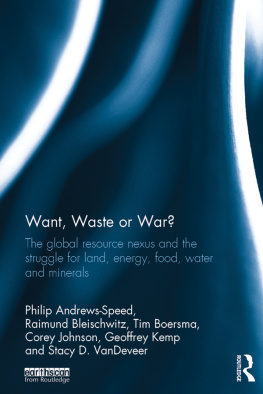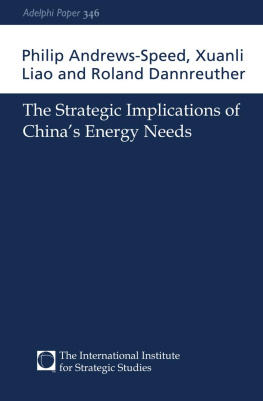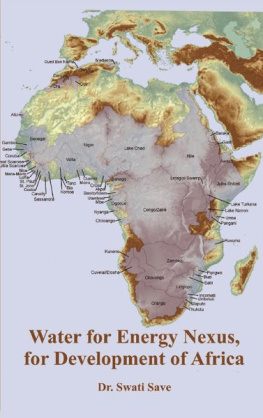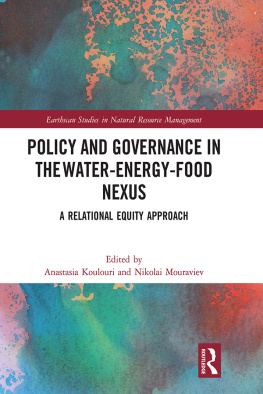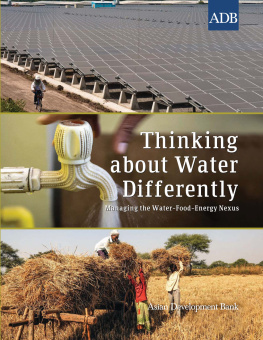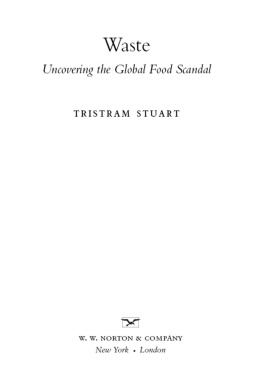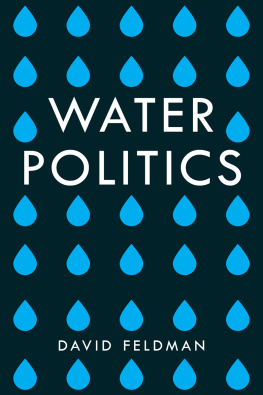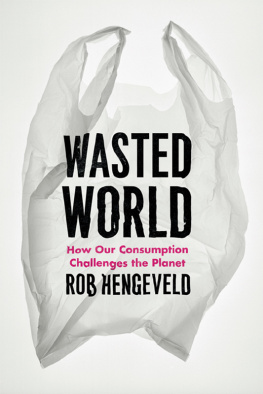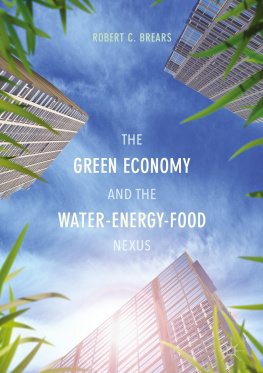Want, Waste or War?
In addition to environmental change, the structure and trends of global politics and the economy are also changing as more countries join the ranks of the worlds largest economies with their resource-intensive patterns. The nexus approach, conceptualized as attention to resource connections and their governance ramifications, calls attention to the sustainability of contemporary consumer resource use, lifestyles and supply chains. This book sets out an analytical framework for understanding these nexus issues and the related governance challenges and opportunities.
It sheds light on the resource nexus in three realms: markets, interstate relations and local human security. These three realms are the organizing principle of three chapters, before the analysis turns to crosscutting case studies including shale gas, migration, lifestyle changes and resource efficiency, nitrogen fertilizer and food systems, water and the Nile Basin, climate change and security and defense spending. The key issues revolve around competition and conflict over finite natural resources. The authors highlight opportunities to improve both the understanding of nexus challenges and their governance. They critically discuss a global governance approach versus polycentric and multilevel approaches and the lack of those dimensions in many theories of international relations.
Philip Andrews-Speed is Principal Fellow, Energy Studies Institute, National University of Singapore.
Raimund Bleischwitz is BHP Billiton Chair in Sustainable Global Resources, University College London (UCL), Institute for Sustainable Resources, London, UK.
Tim Boersma is Fellow at The Brookings Institution, Energy Security Initiative, Washington, DC, USA.
Corey Johnson is Associate Professor of political geography, University of North Carolina at Greensboro, USA.
Geoffrey Kemp is Director of Regional Security Programs, The Center for the National Interest, Washington, DC, USA.
Stacy D. VanDeveer is a Professor and Department Chair, Department of Political Science, University of New Hampshire, USA.
First published 2015
by Routledge
2 Park Square, Milton Park, Abingdon, Oxon OX14 4RN
and by Routledge
711 Third Avenue, New York, NY 10017
Routledge is an imprint of the Taylor & Francis Group, an informa business
2015 Philip Andrews-Speed, Raimund Bleischwitz, Tim Boersma, Corey Johnson, Geoffrey Kemp and Stacy D. VanDeveer
The right of Philip Andrews-Speed, Raimund Bleischwitz, Tim Boersma, Corey Johnson, Geoffrey Kemp and Stacy VanDeveer to be identified as authors of this work has been asserted by them in accordance with sections 77 and 78 of the Copyright, Designs and Patents Act 1988.
All rights reserved. No part of this book may be reprinted or reproduced or utilised in any form or by any electronic, mechanical, or other means, now known or hereafter invented, including photocopying and recording, or in any information storage or retrieval system, without permission in writing from the publishers.
Trademark notice: Product or corporate names may be trademarks or registered trademarks, and are used only for identification and explanation without intent to infringe.
British Library Cataloguing-in-Publication Data
A catalogue record for this book is available from the British Library
Library of Congress Cataloging-in-Publication Data
AndrewsSpeed, C. P.
Want, waste or war? : the global resource nexus and the struggle for
land, energy, food, water and minerals / Philip AndrewsSpeed, Raimund
Bleischwitz, Tim Boersma, Corey Johnson, Geoffrey Kemp and Stacy D.
Vandeveer.
pages cm
1. Natural resourcesPolitical aspects. 2. Raw materialsPolitical
aspects. 3. Security, InternationalEconomic aspects. 4. Human security.
5. GlobalizationEconomic aspects. 6. GlobalizationPolitical aspects.
I. Title.
HC85.A64 2014
333.7dc23
ISBN: 978-1-138-78446-8 (hbk)
ISBN: 978-1-138-78459-8 (pbk)
ISBN: 978-1-315-76824-3 (ebk)
Typeset in Bembo
by Apex CoVantage, LLC
Contents
Part 1
Struggling in the global resource nexus
1
Introduction
Globally, consumption of nearly every resource oil, gas, metals, construction materials, agricultural commodities, water and land increases each year. The material throughput of the global economy and the consumer lifestyles driving it rises inexorably, if unevenly. Meanwhile, most resources are wasted in staggering quantities along their life cycles, as illustrated by food markets, water and fertilizer use, energy and other raw materials. As global demand for most resources grows and the supply of some of these resources diminishes, the interconnections among energy, minerals, water, food and land become more complex and more difficult to understand and anticipate. These interlinkages risk creating conditions for a perfect storm events that seem to occur all of a sudden across many locations. Political tensions in the South China Sea have obvious roots in access to fishery rights, but also in access to fuels and minerals, and are likely to have international ramifications on global shipping lanes. What happens if people start rioting because prices for food, water and energy skyrocket? And what if all this happens in fragile countries that supply the world economy with strategic resources? Can this complex global resource nexus be governed? What happens to our thinking and our governance institutions when we add the growing list of impacts and threats posed by climate change?
All of the upward trend lines related to human use of resources and transformation and degradation of the global environment cannot continue forever, leading to a host of important questions: What governance arrangements can help to address the growing economic, security and humanitarian struggles surrounding the global use of resources? Which existing governance arrangements are impediments to more efficient and equitable resource governance? The business cases for saving money in commodity purchases and resource use are legion and well documented: So what alliances and interventions would be needed right now to disseminate good practices widely and encourage strategic choices for innovations? What roles exist for policy makers, civil society, business and other stakeholders? And perhaps most radically, can we govern for less. In other words, should reductions in resource consumption or the material throughput of national and global economies be a specified goal of governance? Taken together, these questions suggest that policy makers in the public, private and civil society spheres face many hard choices now and in the years ahead. Without effective and equitable resource governance, we suggest, the risks for increased waste, want and war look higher in the future.
Beyond the scale and rate of ecological change, the structure and trends of world politics and the global economy are also changing as Asian, Latin American, African and Middle Eastern states join the ranks of the globes largest economies with their resource-intensive patterns. Rather than join a chorus of doom-crying pessimists or Pollyanna-inspired optimists, this book argues that improved understanding of resource nexus issues, potential impacts and governance options provides a basis for better choices.
The nexus approach is conceived of in this book as a way to focus attention on resource interconnections and their ramifications for lifestyles, livelihoods, technologies and governance. It calls attention to the unsustainability of contemporary consumer lifestyles and supply chains. The book explores an analytical framework for understanding these nexus issues and the related governance challenges and opportunities. In doing so it sheds light on the resource nexus in three realms: markets, interstate relations and local human security. The nexus approach, outlined in the next chapter, specifies what is new and what it contributes to ongoing debates, seeking to add insights to analysis of to what governance seems to work, what is challenging, what level of action is needed, what key actors are there and what institutional changes might be desirable. In more general terms, it will critically discuss global governance in polycentric and multilevel terms, and the lack of those dimensions in many published theories and analyses of contemporary politics.

